The College of Education, Health, and Human Sciences is proud of their faculty, staff and students. Several were named as recipients at the 2020 Chancellor’s Honors banquet. Awards were presented in two categories, the Chancellor’s Citation Awards & Campus Honors.
Awards for Undergraduate & Graduate Students:
Honors Undergraduates Who Exhibit Extraordinary Scholarship
- Alyssa Andreno
- Tianna Batts
- Channing Bearden
- Mary Brakefield
- Brooklyn Broadwater
- Paxton Brooks
- Erika Brown
- Keirsten Brown
- McKinley Burkett
- Rebecca Caruso
- Jennifer Clark
- Rennia Davis
- Erin Gilroy
- Cailin Hannon
- Kasiyahna Kushkituah
- Anthony Carson
- Emilia Carson
- Tiffany Devol
- Josh Elder
- Henrietta Gantt
- Alex Gardner
- Vanessa Gonzalez
- Katherine Graham
- Paul Hibbing
- Amanda Rigell
Awards for Faculty and Staff:
Bestowed by the Office of the Chancellor and the Teaching Council of the Faculty Senate to honor outstanding work in advising.
Sally Hunter
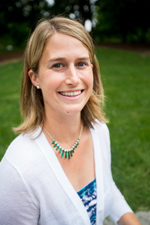 Sally Hunter is a clinical assistant professor who teaches classes and coordinates undergraduate advising for the Department of Child and Family Studies. She is passionate about supporting students during their journey at the University of Tennessee and beyond. She is known for her availability and resourcefulness as she guides students in defining and reaching their academic goals.
Sally Hunter is a clinical assistant professor who teaches classes and coordinates undergraduate advising for the Department of Child and Family Studies. She is passionate about supporting students during their journey at the University of Tennessee and beyond. She is known for her availability and resourcefulness as she guides students in defining and reaching their academic goals.
What does this award mean to you?
I am honored to have been nominated for this award by one of my students. It is wonderful to be recognized as someone who supports students in an advising capacity. I love mentoring and advising these young people; I am so proud of the things many of our students achieve during their time at UT and beyond.
Tammy Renalds
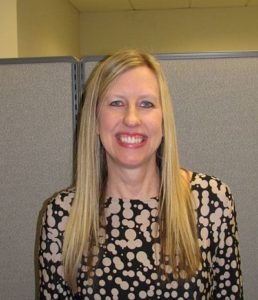 Tammy Renalds is an academic advisor and assistant director of undergraduate advising in the College of Education, Health, and Human Sciences. Students praise her caring, tenacity, and ability to help those who are struggling find a path to success. With both a bachelor’s and master’s degree from UT, she enjoys working “in a place that feels like home.”
Tammy Renalds is an academic advisor and assistant director of undergraduate advising in the College of Education, Health, and Human Sciences. Students praise her caring, tenacity, and ability to help those who are struggling find a path to success. With both a bachelor’s and master’s degree from UT, she enjoys working “in a place that feels like home.”
What does being a Volunteer mean to you?
I first consider being a Volunteer in a true sense of the word: stepping up to help when needed. I also think being a Volunteer means representing the university well and demonstrating a commitment to promoting mattering and belonging among all students, faculty, and staff. I love the idea of “Vol Is a Verb” and the action needed to support it.
Shawn Spurgeon
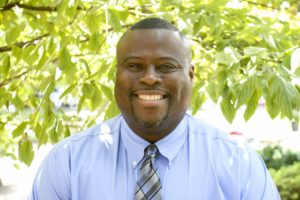 Shawn L. Spurgeon is an associate professor of counselor education. His research publications include articles on African American male development and professor-counselor identity development. Among other national leadership positions, he has served as a member of the Board of Directors of the National Board for Certified Counselors, Ethics Committee co-chair of the American Counseling Association—where he helped revise the set of ethics that guide the profession—and president of the Association for Assessment in Research and Counseling. He has also been president of the Southern Association for Counselor Education and Supervision, and he co-chaired the 2007–08 Smoky Mountain Counselors Association conference. On campus, he has co-directed the Project GRAD Summer Institute since 2013, works with Chi Sigma Iota honor society, and is president-elect of Faculty Senate. Spurgeon provides clinical supervision and guidance not only to students in the Counselor Education program but also to community mental health counselors who are working to attain state licensure.
Shawn L. Spurgeon is an associate professor of counselor education. His research publications include articles on African American male development and professor-counselor identity development. Among other national leadership positions, he has served as a member of the Board of Directors of the National Board for Certified Counselors, Ethics Committee co-chair of the American Counseling Association—where he helped revise the set of ethics that guide the profession—and president of the Association for Assessment in Research and Counseling. He has also been president of the Southern Association for Counselor Education and Supervision, and he co-chaired the 2007–08 Smoky Mountain Counselors Association conference. On campus, he has co-directed the Project GRAD Summer Institute since 2013, works with Chi Sigma Iota honor society, and is president-elect of Faculty Senate. Spurgeon provides clinical supervision and guidance not only to students in the Counselor Education program but also to community mental health counselors who are working to attain state licensure.
What does being a Volunteer mean to you?
It means servant leadership. It means that I value the opportunity to help and support others as they matriculate through society. It means that I value the opportunity to engage others in supportive and meaningful opportunities to have a positive impact on society.
Melinda Gibbons and Erin Hardin
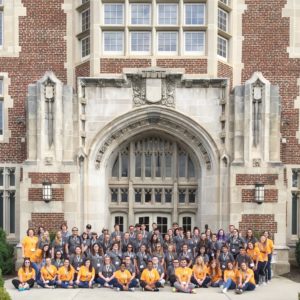
Melinda Gibbons is a professor of counselor education in the Department of Educational Psychology and Counseling. Erin Hardin is a professor and director of undergraduate studies in the Department of Psychology. Combining their expertise in vocational development among underserved groups, they have collaborated to increase career and educational equity and access for rural Appalachian residents, generating new knowledge about the barriers to educational and career equity and evidence-based interventions to decrease these barriers and increase access. Their partnership has led to three federally funded multiyear engaged scholarship grants that directly address these issues, with a new grant currently under review.
Their projects have involved faculty and staff in areas ranging from biotechnology and engineering to political science, as well as several graduate students and undergraduates from across the university. Their work to date has benefited more than 1,800 high school students and led to multiple peer-reviewed manuscripts and presentations.
How does your research benefit UT?
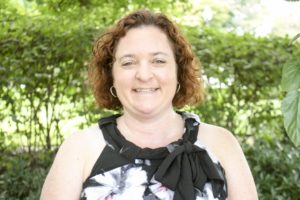 Through building on strengths while also recognizing structural barriers, my research helps youth and emerging adults increase their career and educational knowledge, skills, and opportunities. I don’t work alone, so with my research partners, we have created multiple outreach programs that directly impact students. The FUTURE program provides postsecondary experience for students with intellectual and developmental disabilities. PiPES and ASPIRE provide postsecondary and STEMM (science, technology, engineering, math, medical) awareness and support programs for rural Appalachian students. All three programs also engage the UT community by including undergraduates, graduate students, and faculty to serve as near-peer mentors, research mentors, and programming staff.
Through building on strengths while also recognizing structural barriers, my research helps youth and emerging adults increase their career and educational knowledge, skills, and opportunities. I don’t work alone, so with my research partners, we have created multiple outreach programs that directly impact students. The FUTURE program provides postsecondary experience for students with intellectual and developmental disabilities. PiPES and ASPIRE provide postsecondary and STEMM (science, technology, engineering, math, medical) awareness and support programs for rural Appalachian students. All three programs also engage the UT community by including undergraduates, graduate students, and faculty to serve as near-peer mentors, research mentors, and programming staff.
—Melissa Gibbons
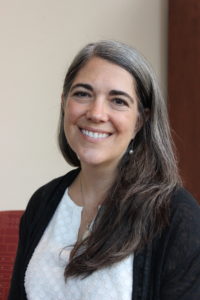 Our research helps faculty, staff, and administrators better understand how to support student success. Much of our work combines research, intervention, and outreach throughout East Tennessee, not only helping to recruit new students to the university, but also enhancing the visibility of UT throughout the region.
Our research helps faculty, staff, and administrators better understand how to support student success. Much of our work combines research, intervention, and outreach throughout East Tennessee, not only helping to recruit new students to the university, but also enhancing the visibility of UT throughout the region.
—Erin Hardin